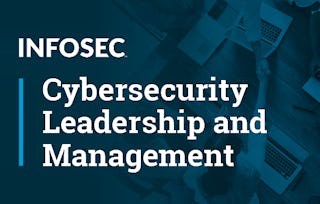This course is aimed at actors and public officials working in the area of citizen security in Latin American and Caribbean countries who are responsible for the design, management and evaluation of public policies for coexistence and citizen security.

Leaders in Citizen Security and Justice Management
Ends soon: Gain next-level skills with Coursera Plus for $199 (regularly $399). Save now.

Leaders in Citizen Security and Justice Management

Instructor: Barbara Paola Cedillo Lopez
Included with
Skills you'll gain
Details to know

Add to your LinkedIn profile
27 assignments
See how employees at top companies are mastering in-demand skills

There are 6 modules in this course
In this module, we will look at the overall picture of crime and violence in Latin America and the Caribbean (LAC) and the relevance of actions taken to prevent them. First, we will establish the extent of crime in the region by comparing international figures, the characteristics of victims and their aggressors, and levels of victimization and insecurity perception. Second, we will look at the most frequent explanations given for crime. Third, we will discuss those strategies for crime control and prevention that have achieved results, those that have failed, and those that are promising.
What's included
7 videos7 readings5 assignments2 discussion prompts2 plugins
In this module, we will review the concepts of governability, governance, and institutionality and how they work in practice, looking at coordination mechanisms at the national and local levels, and across sectors, and considering the key principles of coordination, transversality, comprehensiveness, and focus.
What's included
9 videos6 readings4 assignments1 discussion prompt
In this module, we will discuss the relevance of using information for decision-making and citizen security public policy. We will discuss the different types of sources of information and the concepts of diagnostics, monitoring, and evaluation. The different types of indicators used to measure results at the different phases of program implementation will be explained. Characteristics of the different methods for evaluating citizen security programs will be described, along with their suitability and viability.
What's included
8 videos8 readings4 assignments1 discussion prompt
In this module, we will explore the different concepts associated with violence prevention in vulnerable populations, detailing the various groups considered vulnerable. Specifically, we will go into depth on the theories, different approaches, and modalities for addressing and intervening to prevent violence against women and youth crime and violence. For both groups, we will discuss promising experiences and evaluation systems that are appropriate for these types of programs.
What's included
11 videos7 readings5 assignments1 discussion prompt
In this module, we will explore modern policing trends. Many of the characteristics of current policing organizations face a significant challenge, as the global emergence of civil society has led to fundamental changes in the nature and organization of the police. Specifically, we will address the preventive and investigative role of the police, as well as current policing trends and policing reforms in LAC.
What's included
11 videos10 readings5 assignments3 discussion prompts
This module covers international standards and institutional frameworks for access to criminal justice, focusing on vulnerable groups and promising practices in justice access, alternative conflict resolution, restorative justice, and criminal mediation. It also addresses theoretical models and frameworks for the social reintegration of incarcerated individuals, highlighting successful reintegration practices and evaluation systems, including measures of criminal recidivism.
What's included
19 videos15 readings4 assignments1 discussion prompt1 plugin
Instructor

Offered by
Explore more from Governance and Society
 Status: Free Trial
Status: Free TrialInfosec
 Status: Free Trial
Status: Free Trial Status: Preview
Status: PreviewErasmus University Rotterdam
 Status: Free Trial
Status: Free TrialRoyal Holloway, University of London
Why people choose Coursera for their career




Frequently asked questions
To access the course materials, assignments and to earn a Certificate, you will need to purchase the Certificate experience when you enroll in a course. You can try a Free Trial instead, or apply for Financial Aid. The course may offer 'Full Course, No Certificate' instead. This option lets you see all course materials, submit required assessments, and get a final grade. This also means that you will not be able to purchase a Certificate experience.
When you purchase a Certificate you get access to all course materials, including graded assignments. Upon completing the course, your electronic Certificate will be added to your Accomplishments page - from there, you can print your Certificate or add it to your LinkedIn profile.
Yes. In select learning programs, you can apply for financial aid or a scholarship if you can’t afford the enrollment fee. If fin aid or scholarship is available for your learning program selection, you’ll find a link to apply on the description page.
More questions
Financial aid available,





